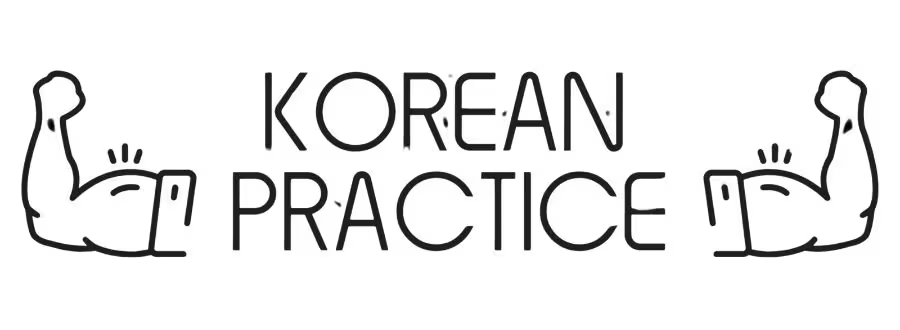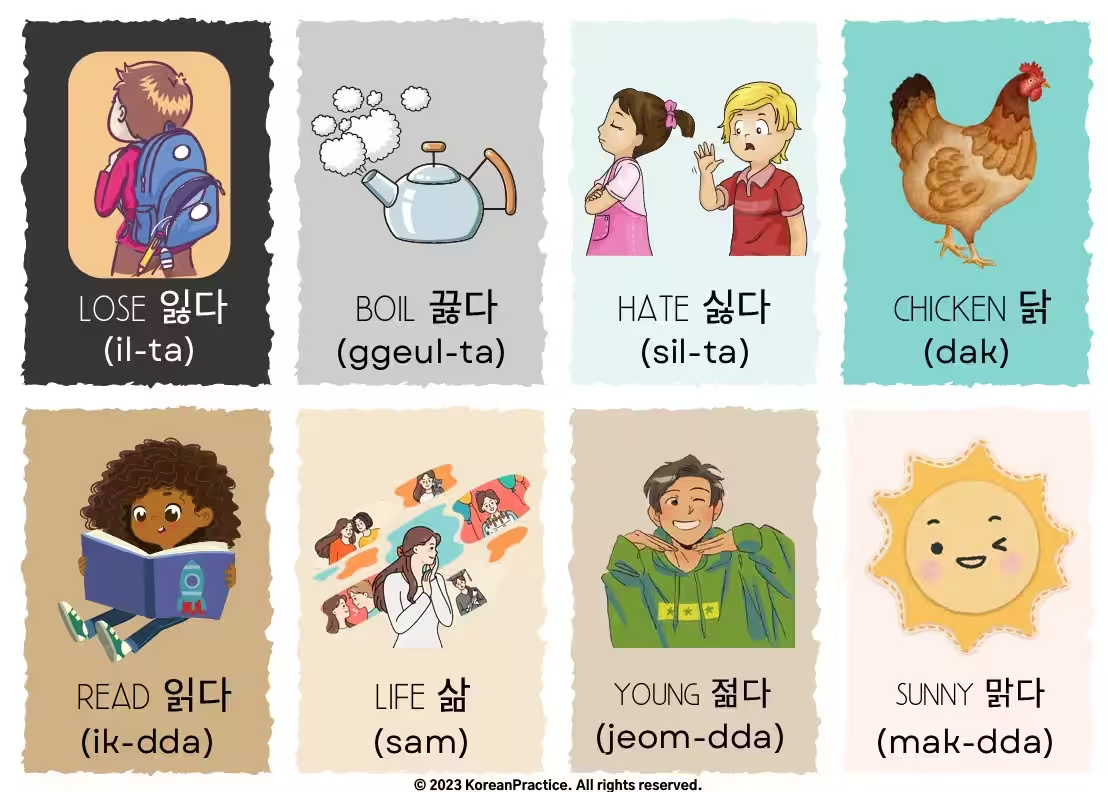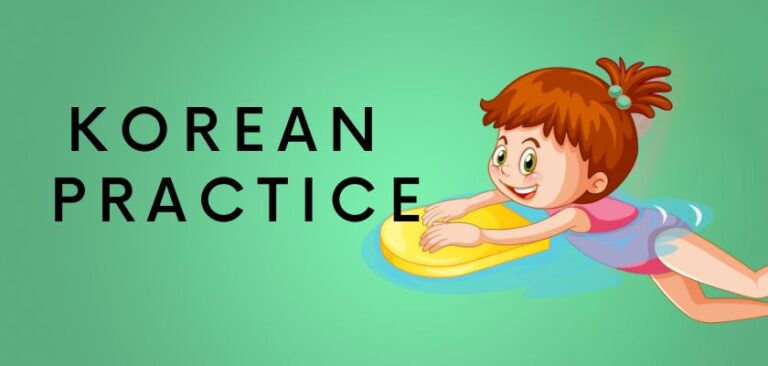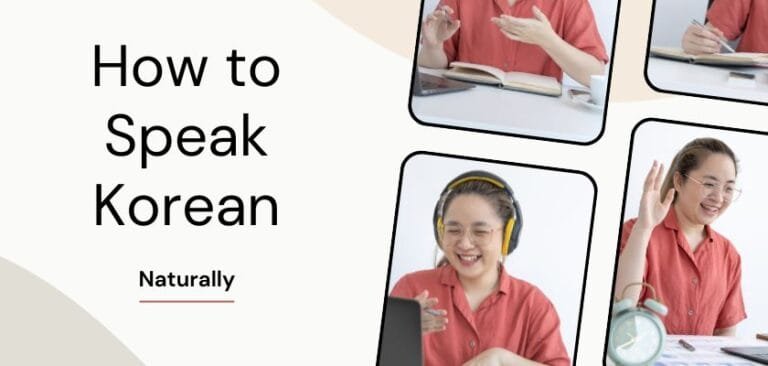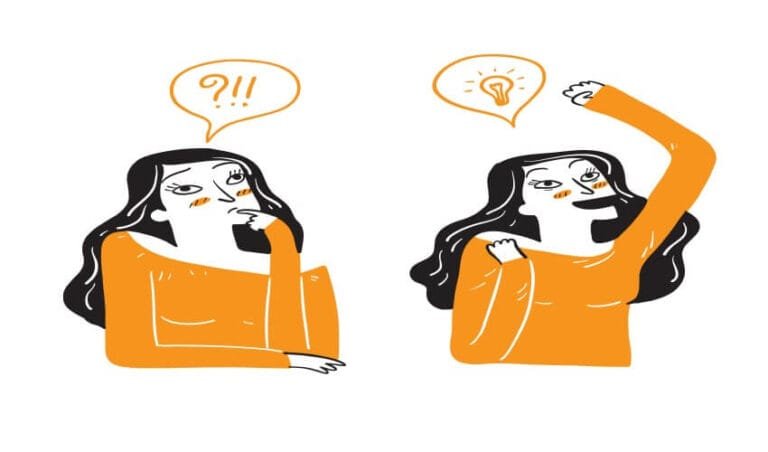Suh ChangWhoon
Written by 서 창훈, a certified Korean teacher with 14+ years of experience in Japan. He previously worked as a government officer, cybersecurity consultant, and English interpreter. Today, he teaches Korean in real classrooms without complex grammar explanations — instead, he trains students’ brains to speak naturally. His unique method is now the foundation of all his Korean courses.
Table of Contents
Many people ask this question: why is Korean so hard to learn? They study for a long time. They use apps, grammar books, and watch YouTube videos. But still, they feel no big change in their Korean speaking. Why? Is it because they are bad at language learning? No. It is because they used the wrong method.
Let me explain to you why just studying is not enough for Korean. And let me share with you the right way — korean speaking practice methods that really train your brain.
Why studying Korean doesn’t work
Many learners think, “If I study hard, my Korean will improve.” But this is not true. I know you work hard. I know you spend time and energy. But if you use the wrong method, your Korean will not grow, never grow... This is the reason so many people search for answers like how to improve Korean speaking or look for better Korean speaking practice methods.
The reason is this: Korean is a very different language. Maybe you speak English as your first language. Let’s imagine you try to learn Italian. Italian is not the same as English, but it is close. The word order is similar. The pronunciation is not so different. You can guess meanings easily because the languages share a lot. In Italian, you can change English words to Italian words, and it will sound okay. You can learn grammar and vocabulary, and you can feel the language fast. Studying works well because your brain already has a structure that fits Italian.
Why Studying Korean Doesn’t Work Like Other Languages
But Korean is not like this. Korean is a completely different kind of language. Korean is what we call an isolated language. That means it does not have close language friends. There is no language in the world that is like Korean in structure.
When you try to study Korean like you study Italian or Spanish, you will feel lost. You will think, “I study so much, but I still cannot speak Korean. Why can’t I speak Korean?” This is one of the common Korean study mistakes. The truth is, studying is not enough. Your brain does not know how to fit Korean into what you already know. Instead, you need to learn Korean through training — practice methods that help you build a new way of thinking for this unique language.
Start the Free Course
Still wondering how to read Korean?

This isn’t just another beginner lesson. It’s a complete system designed to change the way you think about Korean — from struggling with letters to reading real sentences, understanding the language, and speaking out loud with confidence.
Why is Korean so hard to learn?
Let’s look deeper at why Korean feels so hard.
- The sounds of Korean are very different. The pronunciation, the intonation, the rhythm — everything feels new. Your mouth is not used to making these sounds.
- The word order is not what you know. In English, you might say: I eat apples. In Korean, the order is different: I apples eat.
- The grammar has particles, honorifics, and endings that change depending on many things.
- The words are not similar to English words. You cannot guess. All of this makes your brain tired. Your brain tries to study, but it cannot connect the new information to old knowledge.
That is why why is Korean so hard to learn is a common question.
The Real Reason Korean Feels Impossible: The Word Order Challenge
Many learners ask why is Korean so hard to learn, and they often think pronunciation, honorifics, or particles are the hardest part. But I believe the biggest reason Korean feels so difficult is the word order.
Other parts of the language — like sounds, grammar endings, or even honorifics — can be learned over time through steady study. Your brain slowly adapts as you practice. But word order is different. Your brain has a lifelong habit of putting words together in a certain sequence. For example, in English, you say I eat apples. But in Korean, it becomes I apples eat.
Here’s the problem: your brain is not designed to easily flip this order. No matter how much you study Korean, your brain struggles because it can’t connect this new word pattern to your old knowledge. This is one of the biggest Korean study mistakes — trying to solve the word order problem with study alone.
If your first language and Korean had the same word order, your effort would pay off. But when the word order is different, you can study for years and still feel stuck. And here’s something almost no one talks about: imagine you master Korean word order through deep training, not just study. Now, if you start learning another language with English-like word order, your brain will snap right back to English patterns. Everything you built for Korean will feel like it collapses in a moment.
Only people who have experienced this deeply — who have really reflected on language learning — understand this challenge. That’s why learning Korean through training is the key. Hard study isn’t enough. You need to train your brain to think in Korean word order until it becomes natural.
How to Read Korean Faster — Speed Reading That WorksStart the Story Course
Looking for super easy way to learn Korean?
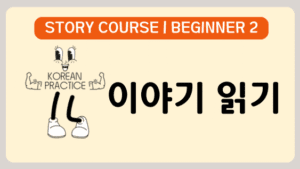
Most Korean courses stop at grammar. Mine goes beyond — with stories, Story Style Breakdown™, and real practice to help you speak.
The big mistake: thinking study will bring fluency
The biggest mistake Korean learners make is this: they focus on memorizing words and studying grammar. You might think, “If I just study harder, I’ll master Korean.” But no — no matter how much effort you put into these two things, you will never master the language this way.
Let’s imagine something extreme. What if you memorized the entire Korean dictionary? Every word, perfectly. Do you think you could speak Korean fluently? Do you think you could understand real conversations? Absolutely not. When you try to speak, you’ll struggle to piece together words. When you try to listen, you might catch a word here and there — but most of what you hear will leave your brain blank, unable to process the meaning, even though you know the words.
Now imagine you memorized all those difficult Korean grammar rules — every ending, every particle, like a grammar expert. Will this help you speak naturally? Never. There has not been a single person in human history who mastered a foreign language by studying grammar alone. Why? Because language is not something you can study into your brain — it’s something you have to train your brain to use.
Think of it like swimming. Can you sit beside the pool, read books about swimming, and then jump in and swim like a pro? Of course not. If you don’t train in the water, you can’t swim. Korean speaking practice methods work the same way. Learning Korean is like learning a sport — it’s physical, it’s action-based. If you keep focusing only on study and not learn Korean through training, you are choosing a path that will never get you where you want to go.
This is why so many people feel stuck and wonder why studying Korean doesn’t work. Because studying is not the answer. Training is.
Why Some People Master Korean Faster — Secrets You Can Use
The secret: train your brain like a child
Think about how you learned your first language. You did not study grammar first. You heard and repeated. You listened to stories. You played with the language. This is what you must do for Korean. You must train your brain. Not study. Train. What does this mean?
- You need to read easy Korean stories that fit your level. Not too hard. Very easy.
- You need to listen to these stories many times.
- You need to feel the language, not translate it.
- You need to say the sentences out loud. Repeat.
- You need to repeat this every day.
This is what I call learn Korean through training.
Korean Sentence Breakdown: 5 Real Examples You’ll Finally Understand
How to improve Korean speaking
If you want to really improve, you need to stop only studying. You need to start training. Here is my plan for you:
1️⃣ Learn to read Korean (Hangul). My free course teaches this. It is easy and clear.
2️⃣ After you can read, start reading easy stories. My story course gives you simple, fun stories that are made for brain training.
3️⃣ Read the story. Listen to the audio. Read again. Try to read faster. Repeat.
4️⃣ Don’t worry if you don’t understand everything. Just let your brain feel Korean.
5️⃣ Do this every day. When you do this, you will stop asking why can’t I speak Korean. You will see your Korean speaking get better.
Discover How to Learn Korean at Home — Free & Proven Tips!Don’t blame yourself
If you feel your Korean is not improving, do not think “I am not good at languages.” You are not the problem. The method is the problem. You tried to study, but Korean needs training.
Many courses and apps focus on study. They give you grammar charts, word lists, click games. They feel fun at first, but they do not train your brain. That is why why studying Korean doesn’t work is a common feeling among learners.
Your time is valuable. Your energy is valuable. Don’t waste it on study-only methods.
The better way
If you want to really learn Korean, come try my story course. It is not like normal study. It is brain training. You will read, listen, repeat, and feel Korean. And after a few weeks, you will see: your brain starts to think in Korean. That is how you learn Korean through training.
That is how you stop asking why is Korean so hard to learn — because now, your brain knows how to handle Korean.
New! Free Course — Learn to Read Korean (Hangul) from ZeroFrom My Original Story Style Breakdown™ — A New Way to Truly Understand Korean
This is just one sentence from a complete learning system you won’t find anywhere else. — designed to help you understand Korean naturally, without getting lost in grammar rules.
When you can truly understand Korean sentences this way, speaking becomes much easier.
🚀 Quick Learning

Original Korean Sentence
사자가 코끼리를 잡아요.
Pronunciation Guide
사자가 (sa-ja-ga) 코끼리를 (ko-ggi-ri-reul) 자바요 (ja-ba-yo).
English Translation
The lion catches the elephant.
Literal Translation
Lion catch elephant.
Quick Reference
사자가 (lion) 코끼리를 (elephant) 잡아요 (catch).
💡 Need more details? Click “Deep Learning” below!
🔍 Deep Learning
Meaning and Context
사자 (lion)
→ The lion — the one taking action now in the story.
가 (subject marker)
→ Points out that the lion is doing the action.
코끼리 (elephant)
→ The one the action is done to.
를 (object marker)
→ Shows that the elephant is the object being caught.
잡 (to catch, grab, take)
→ The action — the lion catches or grabs the elephant.
아요 (polite ending)
→ I’m telling you this in a polite and friendly way.
Real-Life Usage
잡아요 is common when talking about catching or holding something.
Pattern Practice
1. 사자가 토끼를 잡아요.
2. 고양이가 쥐를 잡아요.
3. 아이가 공을 잡아요.
4. 강아지가 공을 잡았어요.
Free Korean Flashcard
FAQs (What You Might Still Wonder About)
1. ❓ What is the best Korean speaking practice method for beginners?
The best way is to train, not just study. That means practicing real sentences, repeating them aloud, and listening to natural Korean again and again. Apps and books can help a little, but they don’t train your brain to speak. Learn Korean through training with stories, shadowing, and sentence breakdowns.
2. ❓ Why can’t I speak Korean fluently even though I know a lot of words?
Because knowing words isn’t the same as knowing how to use them in real conversation. Your brain needs practice connecting words into natural Korean sentences. This is one of the most common Korean study mistakes. Without training in word order and real-life use, it’s hard to speak fluently.
3. ❓ How can I stop making Korean study mistakes that waste my time?
Shift from study to training. Don’t just memorize grammar and vocabulary. Focus on listening, repeating, and using Korean in ways that build real skill. My Story Style Breakdown™ method is designed to help you do exactly that.
4. ❓ Does Korean word order get easier with more training?
Yes — but not with study alone. Korean word order feels hard because your brain wants to use your first language’s word patterns. Only training — hearing, speaking, and using Korean sentences — helps you form new habits so word order feels natural over time.
5. ❓ Why does my brain get so tired when I try to speak Korean?
Because Korean is very different from English (or other languages you may know). The sounds, word order, and grammar don’t connect to your old knowledge easily. That’s why Korean speaking practice methods that train your brain step-by-step work better than study alone.
6. ❓ What’s the difference between learning Korean through training vs. traditional study?
Traditional study teaches you about Korean — grammar rules, vocabulary lists, textbook sentences. Training helps you use Korean: you hear, speak, and think in the language. That’s the path to real fluency.
Final words
You don’t need to study harder. You need to train smarter. Korean is hard not because you are bad at learning. Korean is hard because it is very different. That is why you must train your brain, not just study.
- Stop asking why can’t I speak Korean.
- Stop using study-only apps and books.
- Start reading easy stories, listening, and repeating.
- Start real korean speaking practice methods.
And most important: enjoy the journey. You can do it!
Hear native Korean pronunciation (Forvo)